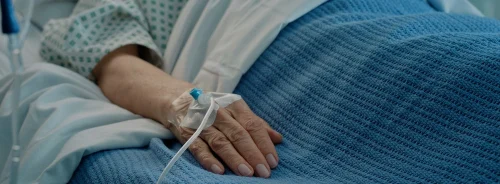ICU Management & Practice, ICU Volume 5 - Issue 3 - Autumn 2005
Authors
Brian Anderson PhD FANZCA FJFICM
Scientific Convenor, Associate Professor
Anaesthesiology, University of Auckland,
New Zealand
Charles Bradfield MB BS FANZCA,
Congress Convenor
Clinical Advisor for Information,
Services/Management Auckland City Hospital,
New Zealand
Vanessa Beavis MB BS FANZCA,
Director Anaesthesia,
Auckland City Hospital,
New Zealand
Correspondence
Website
The Australian & New Zealand College of Anaesthetists Annual Scientific Meeting (ANZCA ASM) in May centred on improving outcomes in intensive care, anaesthesia and pain medicine. Participants explored scientific, cultural and management data that might benefit patients.
Examining the Evidence
Professor Ngan Kee (Hong Kong) opened the meeting with a critical appraisal of established obstetric anaesthetic practice and an examination of controversies surrounding newer methods and developments. Dogma founded in history and tradition is so well established that even small deviations from protocols run the risk of criticism (e.g. the benefits of pethidine (Tsui et al. 2004) or maternal oxygen (Khaw et al. 2002) during labour, spinal anaesthesia for delivery (Roberts et al. 1995) while new dogma rapidly establishes itself (e.g. new local anaesthetics are associated with less motor blockade (Lee et al. 2004). Professor David Menon (Cambridge, UK) reiterated the necessity of research in academic departments (Kitz and Biebuyck 1974). He discussed the establishment of a foundation course in scientific methods and research techniques, complemented by competitive, fully-funded, 12-month academic traineeattachments (the Cambridge SMART Course; Menon et al. 2004).
Subsequent sessions examined evidence for aspects of current practice. For example, data from the recent multi-centre study of intraoperative hypothermia for intracranial aneurysm surgery suggest no improvement of outcome with hypothermia (Todd et al. 2005). Professor Murkin (Ontario, Canada) discussed the impact of anaesthesia upon neurological outcomes in cardiovascular surgery (Iglesias and Murkin 2001; Murkin 2001). Neonates with congenital cardiac defects often present with abnormal MRI scans before surgery. After surgery new or worsening lesions may occur. The long term impact and our ability to effect pre-existing lesions or neurobehavioural outcome remains poorly quantified (Hovels-Gurich et al. 2002; Licht et al. 2004).
Cultural Aspects
Both New Zealand (NZ) and Australia were outposts of the British Empire with large indigenous populations. Currently these indigenous peoples, along with others throughout the Pacific, share disproportionately poor health status when compared to their non-indigenous counterparts. The importance of developing services that are effective, efficient, acceptable and appropriate for NZ Maori and the provision of culturally specific services were elaborated. End of life issues and organ donation present the opportunity for misunderstanding because of different spiritual beliefs. The provision of intensive care and anaesthetic services by Australia and NZ to Pacific Nations through medical training, outreach programs, volunteer work and the establishment of structural frameworks was outlined.
One novel approach to servicing poor rural communities with predominant Maori populations within NZ was the use of a fully equipped operating room contained in a bus. Telecommunication links with major centres and the use of both trained operating personnel from a tertiary centre and local medical staff is proving highly beneficial to all parties. The service is funded by the NZ Government and provides a free service to patients.
Elements of Management
A dramatic event in the life of an anaesthetist was explored using professional actors to present the drama. This format proved extremely effective. Substance abuse, health and the welfare of physicians along with practical issues concerning crisis intervention were outlined (Swanson et al. 2003). Physician physical and cognitive competence decline with age, but this may be balanced by skill and knowledge acquisition. The creation of expertise requires three essential factors – motivation, optimal environmental conditions and deliberate practice. Mistakes (e.g. drug errors) can be minimised by system improvements (Jensen et al. 2004; Runciman and Merry 2005).
External experts with business backgrounds and industrial psychologists with strong backgrounds in the health industry were used to found management and leadership discussions. The benefit of encouraging clinicians into leadership roles across all levels of medicine has advantages. There is a difference between leadership and management. Leadership must be nurtured, trust is important, organisation-wide learning and connectedness improves the workplace. Directors need to know how management distributes its resources and how funding is sourced in order to run a department. Ethical considerations need to be considered by all medical practitioners to provide justice for patients considering the rising cost for high quality care. The inclusion of medical staff outside our specialty and input from non medical experts (managers, government agencies, ethicists, psychologists) broadens our horizons.





